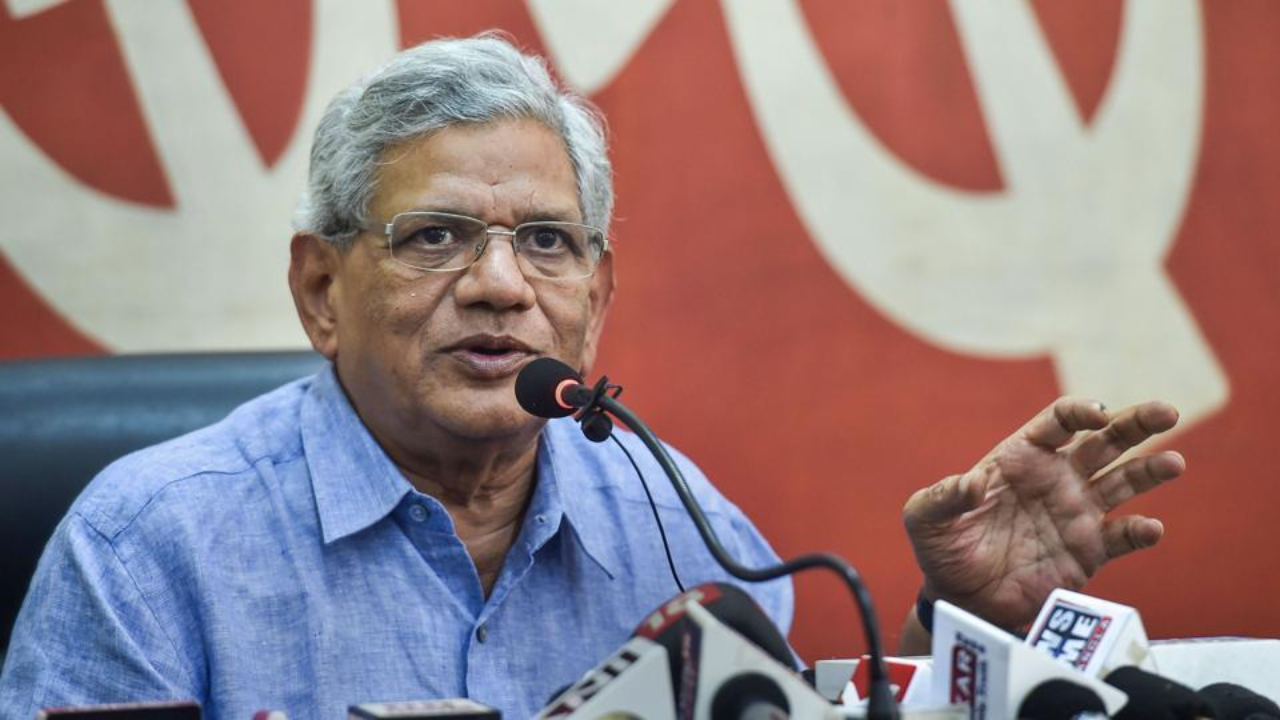
New Delhi: Veteran politician and CPI(M) General Secretary Sitaram Yechury passed away on Thursday due to prolonged illness.
Yechury had been receiving treatment from a team of specialists for respiratory issues, CPI(M) had informed on August 31. He had also recently undergone cataract surgery.
Yechury was a pivotal figure in Indian politics, celebrated for continuing the coalition-building efforts initiated by his predecessor, Harkishan Singh Surjeet. His contributions to coalition politics were significant, notably collaborating with P. Chidambaram to draft the Common Minimum Programme for the United Front government in 1996. He was also instrumental in the coalition-building that led to the formation of the United Progressive Alliance (UPA) government in 2004.
Who was Sitaram Yechury?
Born in 1952 in Chennai, Yechury’s academic journey took him from Nizam College in Hyderabad to Delhi, where he achieved an all-India first rank in the Central Board of Secondary Education Class 12 exams in 1970. He pursued economics at St Stephen’s College and JNU, where he first met fellow communist Prakash Karat.
Sitaram Yechury's Political Journey
In 1975, while a student at Jawaharlal Nehru University (JNU), Yechury was arrested during the Emergency period. His leadership skills were evident when he was elected president of the JNU Students’ Union three times within a year from 1977 to 1978.
Yechury's death marks the end of an era for the CPI(M) and Indian politics, where he was renowned for his strategic insight and commitment to his party's ideals. Despite his passing, the CPI(M) continues to face challenges; the party secured its first-ever parliamentarian from Rajasthan in the 2024 national elections, but the Left bloc overall struggled to regain its former influence, particularly in West Bengal, which it had ruled for 34 years. The CPI(M) no longer holds any assembly or Lok Sabha seats in Bengal and lost power in Tripura after 25 years in 2018. Currently, the party has four lawmakers each in the Lok Sabha and Rajya Sabha, and 78 assembly members.
Yechury and Karat were key members of the UPA-Left coordination committee, which struggled to resolve differences over the India-US nuclear deal. Unlike Karat, who was ideologically rigid, Yechury advocated for the Left, which had 60 lawmakers in the 543-member Lok Sabha, to continue supporting the Congress-led government.
A favourite of the Rajya Sabha, Yechury was known for his witty remarks, often telling the Chair, “The colour of the Rajya Sabha is red and that of the Lok Sabha is green because if the Lok Sabha green lights any faulty bill, the Rajya Sabha must show it the red light.”
(Inputs from PTI)

